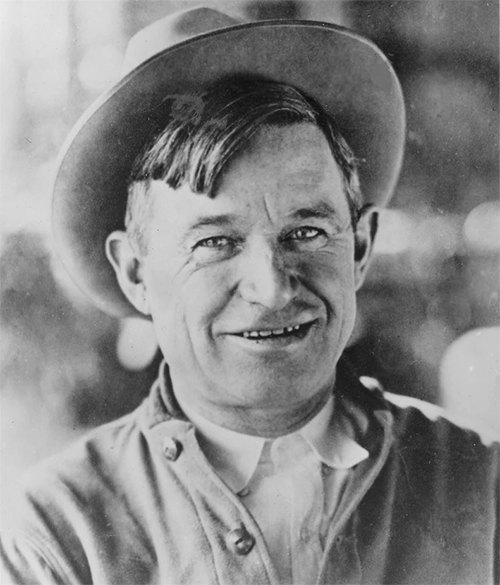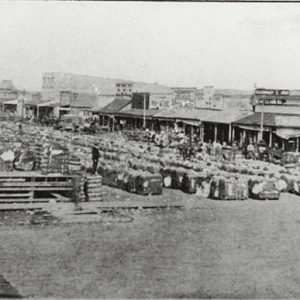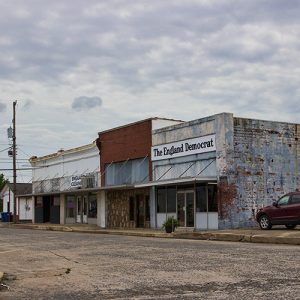By Dr. Curtis Varnell
The date was January 3, 1931 and times were hard across the South. Months after the stock market collapsed, drought hit the mid-west. Dust clouds blew the plowed soil into the air creating billows of dark grit in the sky. Thousands of people packed up and moved from the parched lands of Oklahoma, Kansas, Arkansas, and Texas. Those remaining faced hard times as the crops that they relied on for food and income produced such meager fare that there was nothing to eat and no money to buy more.


England, Arkansas, a small town located just east of the state capitol in Lonoke County, was destitute. The cotton crop they depended on had failed, the bank they borrowed money from had collapsed, and the aid they were receiving from the Red Cross was cut-off due to not having the correct paperwork.
H.C. Coney, a local farmer, described the situation. “We all gotpretty low on food out there, and some was a starving. A woman came over to me crying. Her kids had not eat in two-dayand wanted to know what we were going to do.” Coney said he got in his truck, picked up neighbors, and began the short trip into town. More men joined as they approached town, some with weapons. Most of the men were known as hard-working farmers, blue-collar men who were desperate to feed their families. The local Red Cross, said to already be feeding over 100,000 starving Arkansan’s had no food to give and lacked the needed paperwork for the men to apply for help from the food bank in St. Louis.

The New York Times reported that 500 or more men, half of whom were armed, stormed the business section of town and demanded food or threatened to take it by force. Having little choice, local merchants opened the doors to their business and handed out what supplies they had, hoping that the Red Cross or the federal government would repay them for their loss. The food and supplies were enough to last only a few days but the actions of the disgruntled farmers had far-reaching implications. Alarmed as well as embarrassed by the national press which characterized the Hoover administration as being “fat cats” enjoying the good life while the population starved, began to look at options to help. Joe T. Robinson, Arkansas Senator, agreed to supply loans to assist the poor.

Hearing of the plight, Will Rogers wrote, “It took a little band of 500 simple country people … to demand food for their wives and children to hit the heart of the American people more than all of your Senatorial pleas and government investigations.” He traveled to Washington to ask Hoover for direct aid to the region. Turned down, he travelled to England, Pine Bluff, and the region and see the conditions for himself. He organized a relief program on his own, went on a 19 stop tour, and gave the proceeds to assist farmers. His national radio pleas raised over $3 million dollars for the poor.
Rogers, raised poor in a small central Oklahoma town, understood the plight of the poverty stricken and, with his home-spun humor and national popularity, used his celebrity as a platform to attack the wealthy. “It wasn’t the working class that brought this condition on. It was the big boys themselves who thought that this financial drunk we are going through was going to last forever. They over-merged and over-Capitalized, and over-everything else. That’s the fix we are in now.”
The actions of a few hundred hungry farmers is said to be the impetus for the election of FDR and the beginning of the New Deal. When asked what Arkansas owed for his part in assisting their plight, Rogers replied in his old shucks manner, “Arkansas gave me much more than I gave them when I got Betty.” Rogers was married to Betty Blake of Rogers, Arkansas in 1908. The fall after the riot, Arkansas had a bumper crop. Seeing the plight of the coal miners in central Oklahoma, farmers in the England area, sent 13 truckloads of food to the struggling miners. Rogers wrote, “Now, that’s remembering, ain’t it?”






